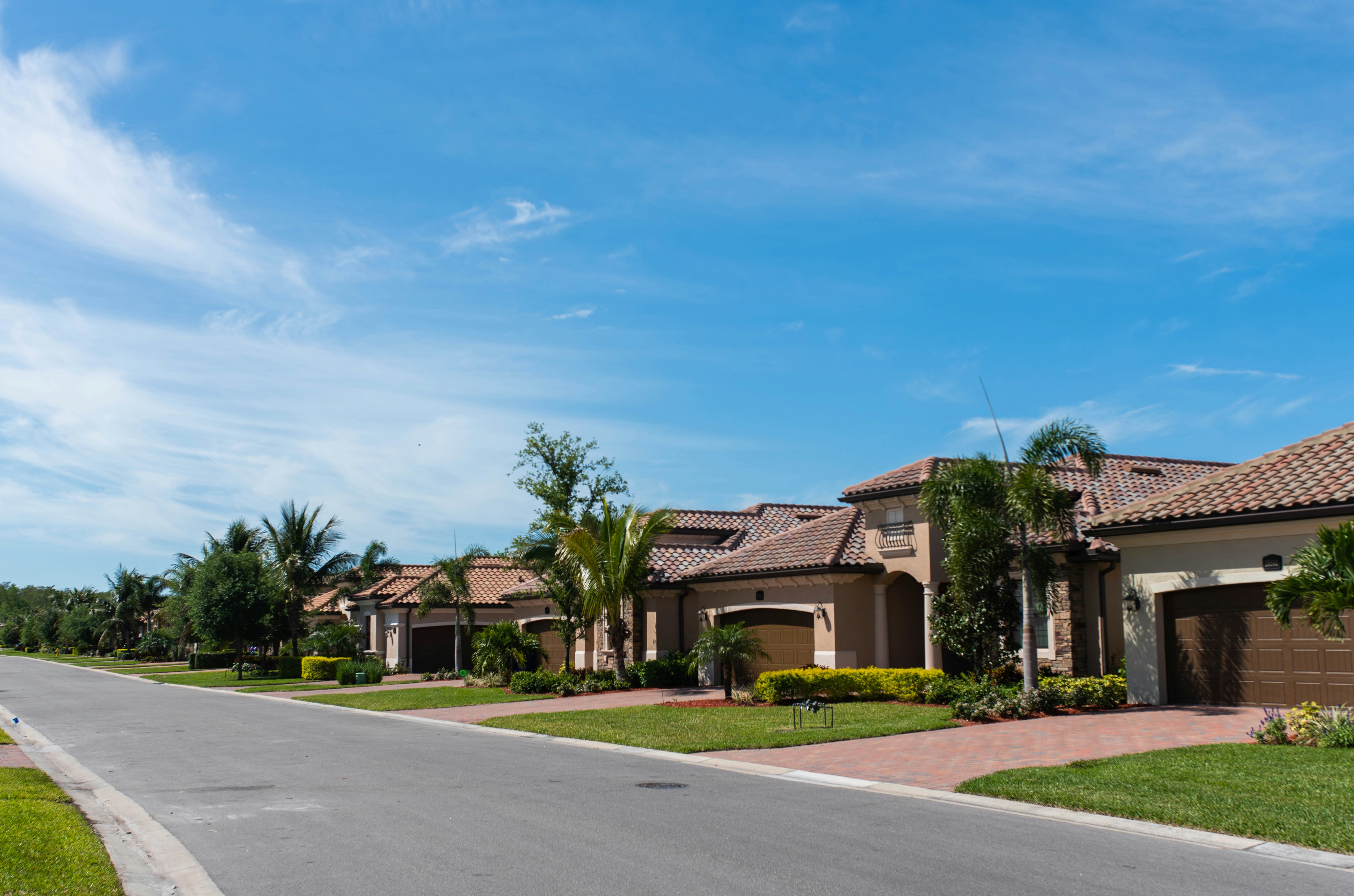Introduction to Florida as a Retirement Destination
Florida has long been heralded as a premier retirement destination, attracting a diverse array of retirees from across the nation. The state’s allure can primarily be attributed to its favorable climate, which boasts warm temperatures and ample sunshine year-round. This pleasant weather is particularly appealing to retirees seeking to escape the harsh winters of the northern states, offering them a more comfortable and active lifestyle. Having lived in the state for nearly thirty years, I can confirm that retirees will face numerous challenges. However, it’s crucial to acknowledge that the changes occurring within the state are not universal.
Another significant draw to Florida is its lack of state income tax, which can substantially ease the financial burden on retirees living on fixed incomes. This fiscal advantage allows retirees to stretch their savings further, providing them with more financial freedom to enjoy their golden years. The absence of state income tax, coupled with relatively affordable housing options, positions Florida as an economically attractive option for many.
Beyond the economic benefits, Florida is renowned for its abundant recreational opportunities. The state is home to numerous golf courses, beautiful beaches, and a wide array of outdoor activities that cater to diverse interests. Whether it’s fishing, boating, or simply walking along scenic coastal paths, retirees can find an array of activities to stay active and engaged. Additionally, Florida’s vibrant cultural scene, with its theaters, museums, and festivals, ensures that there is always something to do.
Florida’s appeal is further enhanced by its diverse communities and lifestyle options. From bustling cities like Miami and Orlando, offering a dynamic and energetic lifestyle, to serene beach towns like Naples and Sarasota, providing a more laid-back and tranquil environment, the state offers something for everyone. This diversity allows retirees to choose a community that best fits their personal preferences and lifestyle needs, ensuring a high quality of life.
Overall, Florida’s combination of a warm climate, economic benefits, recreational opportunities, and diverse living environments makes it an attractive destination for retirees. However, while these advantages are compelling, it’s crucial to carefully consider all factors before making the decision to move or retire in the Sunshine State, as this choice can significantly impact one’s quality of life.
Climate and Weather Considerations
Florida’s climate is one of its most attractive features, with warm temperatures and abundant sunshine year-round. The state’s subtropical to tropical climate creates an environment that is ideal for outdoor activities, making it a popular destination for those seeking an active, outdoor lifestyle. However, this climate also comes with its own set of challenges that potential residents should consider carefully.
One of the primary benefits of Florida’s climate is its mild winters. Unlike many other states, Florida experiences very little cold weather, which can be particularly appealing to retirees looking to escape harsh winters. The average winter temperature in many parts of Florida hovers around 60-70 degrees Fahrenheit, allowing for comfortable living and a variety of outdoor pursuits. However, the flip side of this is the high humidity levels and hot temperatures experienced during the summer months. Average summer temperatures can exceed 90 degrees Fahrenheit, and the accompanying humidity can make it feel even hotter. This can have implications for daily life, from the need for air conditioning to the potential health risks associated with prolonged exposure to heat.
Another critical factor to consider is Florida’s hurricane season, which runs from June 1 to November 30. Hurricanes and tropical storms can cause significant damage to property and pose serious safety risks. Prospective residents should be prepared for the possibility of evacuations and the need for hurricane-resistant housing features and insurance, particularly in a fragmented homeowners insurance market, where premiums have been escalating at an unprecedented rate, I have recently been affected by an additional $6,000 annually on top of the already high premium I had been paying. I was already paying. The impact of hurricanes also extends to property maintenance, as homes and landscapes may require more frequent upkeep and repairs due to storm-related damage.
Overall, while Florida’s climate offers many advantages, it also presents certain challenges that can affect daily life, health, and property maintenance. Potential residents should evaluate these factors carefully to ensure that the state’s weather conditions align with their lifestyle and health needs.
Cost of Living and Financial Planning
When contemplating a move or retirement in Florida, understanding the cost of living and engaging in detailed financial planning is crucial. One of the primary attractions of the state is its lack of state income tax, which can be a significant financial advantage for retirees. This tax benefit can result in considerable savings, allowing individuals to allocate more of their income towards other essential expenses such as housing, healthcare, and leisure activities.
Florida’s cost of living varies significantly depending on the region. Major cities like Miami and Orlando tend to have higher living expenses compared to smaller towns and rural areas. Housing is a significant component of the cost of living. As of recent data, the median home price in Florida is above $300,000, although this figure can fluctuate based on location. Prospective retirees should carefully research housing markets in their desired areas, considering both purchase and rental options. Additionally, property taxes and homeowners’ association fees can add to the overall cost and these fees can run in excess of $500 monthly.
Healthcare is another critical factor for retirees. While Florida boasts a variety of healthcare facilities and services, costs can vary. It is essential to consider health insurance premiums, out-of-pocket expenses, and the availability of in-network providers. Medicare can help mitigate some of these costs, but understanding the specifics of coverage and additional insurance needs is vital for financial planning.
To ensure a comfortable retirement, budgeting is imperative. Start by estimating your monthly expenses, including housing, utilities, food, transportation, and healthcare. Factor in lifestyle choices like dining out, travel, and recreational activities. Creating a financial cushion for unexpected expenses is also advisable. Tools like retirement calculators can offer valuable insights into whether your current savings and income streams can sustain your desired lifestyle.
In conclusion, a thorough analysis of the cost of living and robust financial planning is essential for anyone considering moving or retiring in Florida. By understanding housing prices, healthcare costs, and the implications of Florida’s tax structure, retirees can make informed decisions that positively impact their quality of life.
Healthcare and Medical Facilities
One of the most critical factors to consider before moving or retiring in Florida is the availability and quality of healthcare services. Florida boasts a wide array of medical facilities, ranging from large, well-renowned hospitals to smaller, community-based clinics. This extensive network ensures that residents have access to comprehensive healthcare services, which is particularly crucial for retirees who may have increased medical needs.
Florida is home to numerous specialized healthcare facilities that cater specifically to the needs of seniors. Many hospitals and clinics offer specialized care in geriatrics, cardiology, oncology, and orthopedics, ensuring that seniors receive tailored care for age-related conditions. Additionally, Florida has a high concentration of skilled nursing facilities, assisted living communities, and memory care centers, providing a spectrum of options for long-term care.
However, the quality of healthcare can vary significantly by region. Urban areas such as Miami, Orlando, and Tampa generally offer more advanced healthcare services and a higher concentration of specialists. These metropolitan areas are often equipped with state-of-the-art medical technology and have hospitals that are affiliated with leading research institutions. Conversely, rural areas may have limited access to specialized care and fewer healthcare providers, which can impact the timely diagnosis and treatment of medical conditions.
When choosing a location in Florida, it is vital to consider the proximity to quality healthcare facilities. Being close to a hospital or a healthcare center that offers specialized services can significantly enhance one’s quality of life, particularly for those with chronic health conditions. Accessibility to healthcare services can reduce the stress associated with managing health issues and improve overall well-being.
Ultimately, the availability and quality of healthcare should be a pivotal factor in your decision-making process. Ensuring that you have access to comprehensive and specialized medical care can profoundly impact your quality of life and provide peace of mind as you embark on this new chapter in Florida.
Lifestyle and Community Engagement
Florida offers a diverse range of lifestyle options and community engagement opportunities that can significantly enhance the quality of life for retirees. Known for its warm climate and picturesque landscapes, the state provides a perfect setting for various recreational activities. From golfing and fishing to hiking and boating, outdoor enthusiasts will find no shortage of ways to stay active and enjoy the natural beauty of the Sunshine State.
Cultural events are another cornerstone of life in Florida, with numerous festivals, art exhibitions, and theater performances held throughout the year. Cities like Miami, Orlando, and Tampa are renowned for their vibrant cultural scenes, offering retirees endless opportunities to explore new interests and stay engaged with the community. Whether you have a passion for music, visual arts, or culinary delights, Florida’s rich cultural tapestry is sure to offer something that resonates with you.
Social clubs and organizations also play a crucial role in fostering community engagement among retirees. Many towns and cities in Florida have active senior centers, hobby groups, and volunteer organizations that cater specifically to older adults. These groups provide excellent opportunities for social interaction, making it easier for retirees to build meaningful connections and friendships. Whether you enjoy gardening, reading, or participating in fitness classes, there is likely a club or group that aligns with your interests.
Finding a community that matches your interests and values is essential for a fulfilling retirement. Researching potential communities and visiting them in person can help you get a feel for the local vibe and assess whether it aligns with your lifestyle preferences. Consider factors such as the availability of recreational facilities, proximity to cultural events, and the presence of social clubs when making your decision. A well-chosen community can greatly enhance your overall happiness and well-being, making your retirement in Florida both enjoyable and rewarding.
Potential Drawbacks and How to Mitigate Them
Retiring in Florida might seem like an idyllic choice, but it comes with its own set of challenges that need careful consideration. One significant drawback is the risk of natural disasters, particularly hurricanes. Florida’s geographical location makes it susceptible to these events, which can disrupt daily life and pose safety risks. To mitigate this, it is crucial to invest in a property with robust hurricane-resistant features and to have a comprehensive insurance policy. Additionally, staying informed about evacuation routes and having an emergency preparedness plan can go a long way in ensuring safety.
Another factor to consider is the influx of seasonal residents. The state’s population swells during the winter months, which can lead to increased traffic, crowded public spaces, and longer wait times for services. This seasonal fluctuation can affect the overall quality of life. To navigate this, consider choosing a retirement community that offers amenities and services designed to handle these population surges efficiently. Additionally, planning activities and errands during off-peak times can help avoid the busiest periods.
Adapting to a new environment can also be a challenge, despite decades of living in the state, it’s an experience I have yet to grow fond of. The subtropical climate, while appealing, can be quite different from what many retirees are accustomed to. The hot and humid summers may require a period of adjustment. It’s advisable to visit Florida during different seasons before making a permanent move to ensure you can comfortably handle the climate year-round. Furthermore, joining local clubs or community groups can provide social support and help ease the transition into this new phase of life.
Considering these potential drawbacks and proactively preparing for them can significantly enhance your retirement experience in Florida. By taking strategic measures, you can mitigate the risks associated with natural disasters, manage the impact of seasonal population changes, and smoothly adapt to your new environment, thereby ensuring a high quality of life.








